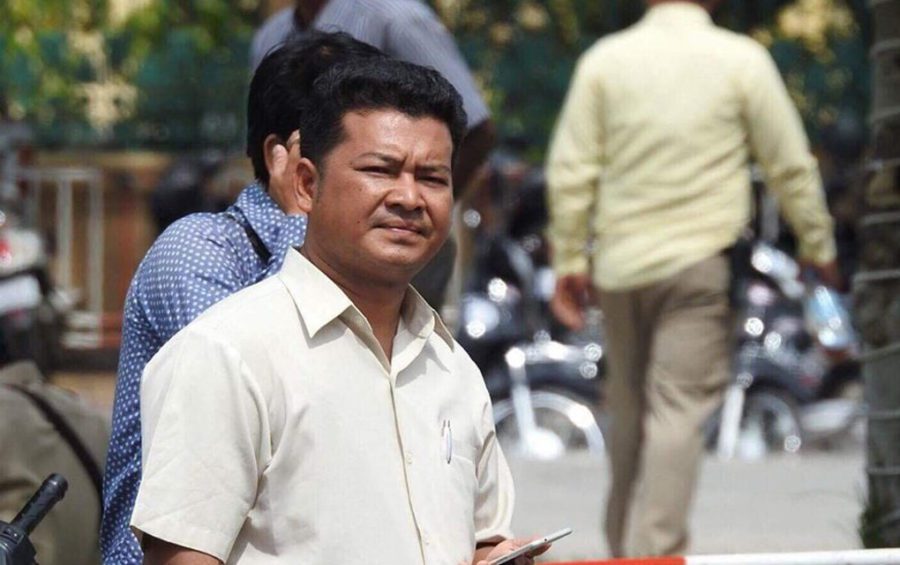A Phnom Penh court judge presiding over a mass trial said she had matched a defendant’s voice to a phone tap just by listening to their testimony in court — a claim challenged by the former CNRP official.
The court resumed the fifth mass trial against members of the dissolved CNRP for allegedly corralling support for the failed return of former party vice president Mu Sochua in 2021. Thirty-seven former party leaders and activists are being tried in the case on a plotting charge.
During Thursday’s hearing, the court played four audio clips of alleged conversations defendant Kong Mas, a former CNRP member, had on phone calls with different people at the request of the judge.
According to the court, Mas could be heard talking about Sochua’s planned return, asking supporters to come to Phnom Penh to observe a trial in early 2021 and promised to pay them with funds from Sochua and another former CNRP vice president Eng Chhai Eang to cover any expenses.
In one of the clips, the person on the call can be heard introducing themselves as “Kong Mas from Svay Rieng” province, and mentions the planned 2021 return of Sochua and party leader Sam Rainsy to Cambodia.
At the time, Sochua was attempting to attend the first mass trial against senior party leaders for planning an “attack” against the state for organizing Rainsy’s failed return in 2019. Nine leaders were convicted in the case and handed 20 to 25 years in prison.
Judge Ouk Rethkunthea asked Mas, who was present in court, if he recognized his voice in the audio clips. Mas denied the voice was his.
Rethkunthea then pointed out that the person on the call introduced themselves as “Kong Mas” and used words like “encouragement” and “the constitution states” which the defendant had used in court as well.
“Actually, I don’t accept this. The reason is because in these technological times, they can edit anything,” Mas said in court.
He also contested the phone number on the alleged calls, saying he used Cellcard’s phone services but the person in the audio clips had a Smart phone number. Mas added that even if he were the person speaking, nowhere in the audio clips does he talk about plotting or committing crimes against the state.
Judge Rethkunthea then said she had observed Mas’s voice during the trial and every time he yelled at the bench it helped them match his voice to the one in the audio clips. At one point, the judge added that the proceedings were being recorded.
“I am not stupid. Even though you scold me, I still listen in order to compare your voice and even during the trial today, [your voice] was recorded.”
Prosecutor Seng Heang agreed with the judge and said during the seven hearings so far in the trial it was clear that Mas’s voice matched the one in the recordings.
Rethkunthea then asked Seng Dina, a National Police officer handling external intelligence, to provide the locations and times for the recorded phone calls. Dina said he would have to consult and get the approval of his superiors before sharing the information with the court.
Rethkunthea then again asserted that the proceedings were being recorded.
“During every hearing of the trial, was recorded and the court verified it. Kong Mas spoke a lot more than others. I will not inculpate you but I will make you satisfied [about the audio],” she said.
At no point during the hearing did the judges or prosecution provide any forensic analysis of the audio recordings to prove that Mas was on the recorded calls.
The trial will resume on November 24.












